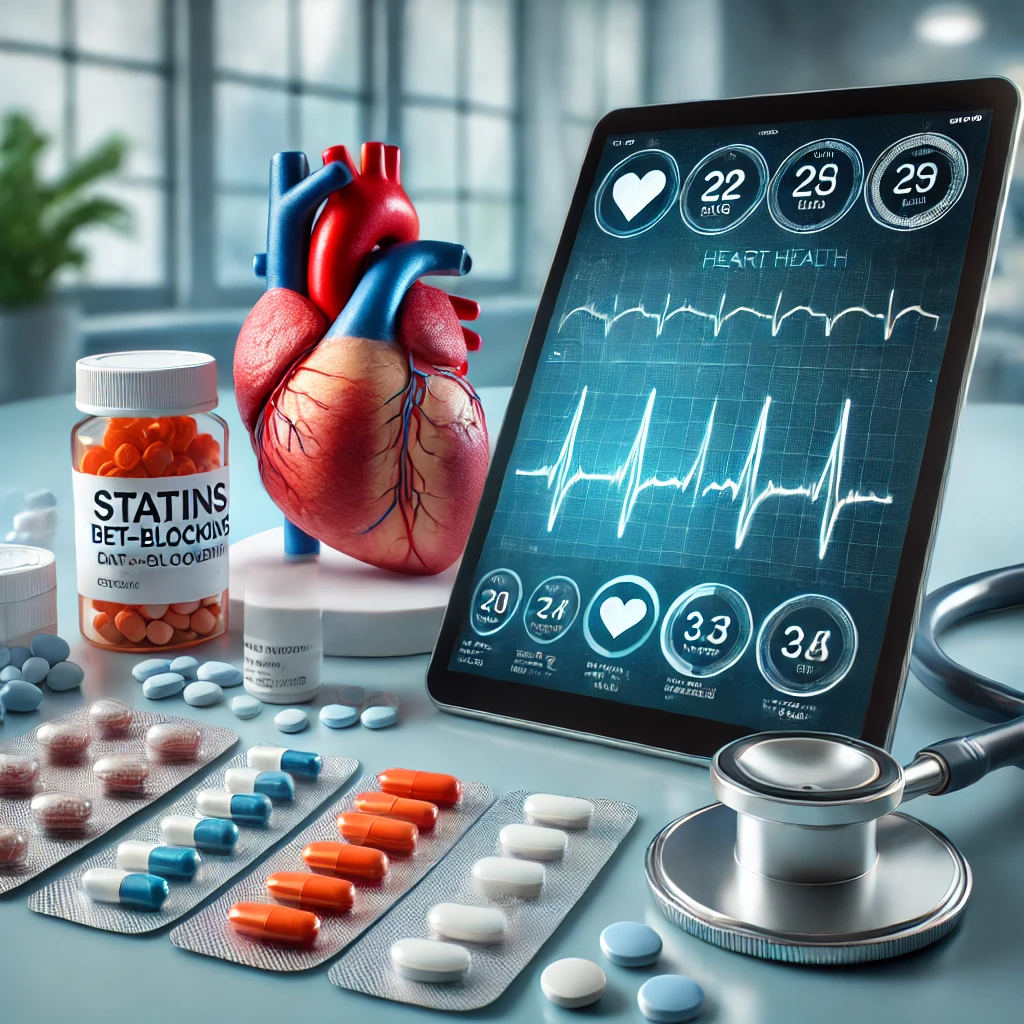Cardiology Medicine: Advancements in Heart Treatments and Medications

Introduction: The Role of Medications in Heart Health
Cardiovascular diseases (CVDs), such as coronary artery disease, hypertension, and heart failure, are among the leading causes of death worldwide. Medications play a crucial role in managing these conditions by controlling risk factors, improving heart function, and preventing complications. Over the years, the field of cardiology has witnessed significant advancements in medications, offering patients more effective treatments with fewer side effects. In this blog, we explore the latest developments in cardiology medicine and how they are shaping the future of heart care.
Types of Cardiology Medications
1. Antihypertensive Drugs
High blood pressure, or hypertension, is a major risk factor for heart disease and stroke. Antihypertensive drugs work to lower blood pressure and reduce strain on the heart. Some common classes of antihypertensive medications include:
- ACE Inhibitors (e.g., lisinopril): These drugs help relax blood vessels and lower blood pressure.
- Beta-Blockers (e.g., metoprolol): These medications reduce the heart rate and the force of heart contractions, making the heart work more efficiently.
- Calcium Channel Blockers (e.g., amlodipine): These drugs prevent calcium from entering the heart cells and blood vessels, resulting in relaxed blood vessels and lower blood pressure.
2. Anticoagulants and Antiplatelets
Blood clots can lead to heart attacks or strokes, so anticoagulants (blood thinners) and antiplatelets are essential for preventing clots in at-risk patients. Some of the most commonly used drugs include:
- Warfarin and newer anticoagulants like apixaban and rivaroxaban: These medications reduce the formation of blood clots.
- Aspirin: This is often used as an antiplatelet agent to prevent clots, especially in patients who have had a heart attack or stroke.
3. Statins
Statins, such as atorvastatin and rosuvastatin, are prescribed to lower cholesterol levels, which is a key factor in preventing the buildup of plaque in the arteries (atherosclerosis). These medications have been shown to reduce the risk of heart attacks and strokes by lowering LDL (bad cholesterol) and improving overall cholesterol balance.
4. Heart Failure Medications
For patients with heart failure, medications are designed to improve heart function and reduce symptoms like shortness of breath and fluid retention. Some key medications include:
- Diuretics: These help reduce fluid buildup in the body, which can ease the workload on the heart.
- ARNI (Angiotensin Receptor-Neprilysin Inhibitors): A newer class of drugs, such as sacubitril/valsartan, has shown significant benefits in reducing hospitalizations and deaths in patients with heart failure.
- Aldosterone Antagonists: These drugs, like spironolactone, help prevent the harmful effects of excessive aldosterone, which can contribute to heart damage.
Recent Advances in Cardiology Medicine
1. PCSK9 Inhibitors
PCSK9 inhibitors, such as evolocumab and alirocumab, are a newer class of cholesterol-lowering drugs that have shown dramatic reductions in LDL cholesterol levels. They are especially useful for patients who cannot achieve their target cholesterol levels with statins alone.
2. SGLT2 Inhibitors
Initially developed to treat diabetes, SGLT2 inhibitors (such as empagliflozin and dapagliflozin) have emerged as promising medications for heart failure. These drugs have been shown to improve outcomes in patients with heart failure, regardless of whether they have diabetes.
3. New Antithrombotic Agents
The development of direct oral anticoagulants (DOACs), such as dabigatran and edoxaban, has revolutionized the treatment of patients at risk of blood clots. These drugs are easier to use and require less frequent monitoring compared to traditional anticoagulants like warfarin.
4. Gene Therapy and Regenerative Medicine
Although still in experimental stages, gene therapy is being explored as a treatment for genetic forms of heart disease. This approach aims to correct faulty genes or deliver new genes to restore normal heart function. In addition, regenerative medicine, such as stem cell therapy, holds promise for repairing damaged heart tissue after a heart attack.
The Future of Cardiology Medicine
As research continues, cardiology medicine will likely see further breakthroughs in personalized treatments, where medications are tailored to the individual’s genetic makeup, lifestyle, and disease progression. Advances in technology, such as AI-driven drug discovery and precision medicine, will also play a significant role in developing new heart medications.
Conclusion: A New Era of Heart Care
With continuous advancements in cardiology medicine, patients with heart disease have access to better, more effective treatments than ever before. From innovative cholesterol-lowering drugs to cutting-edge therapies for heart failure, the future of cardiology is bright, offering hope for improved quality of life and longer lifespans for millions of people worldwide.